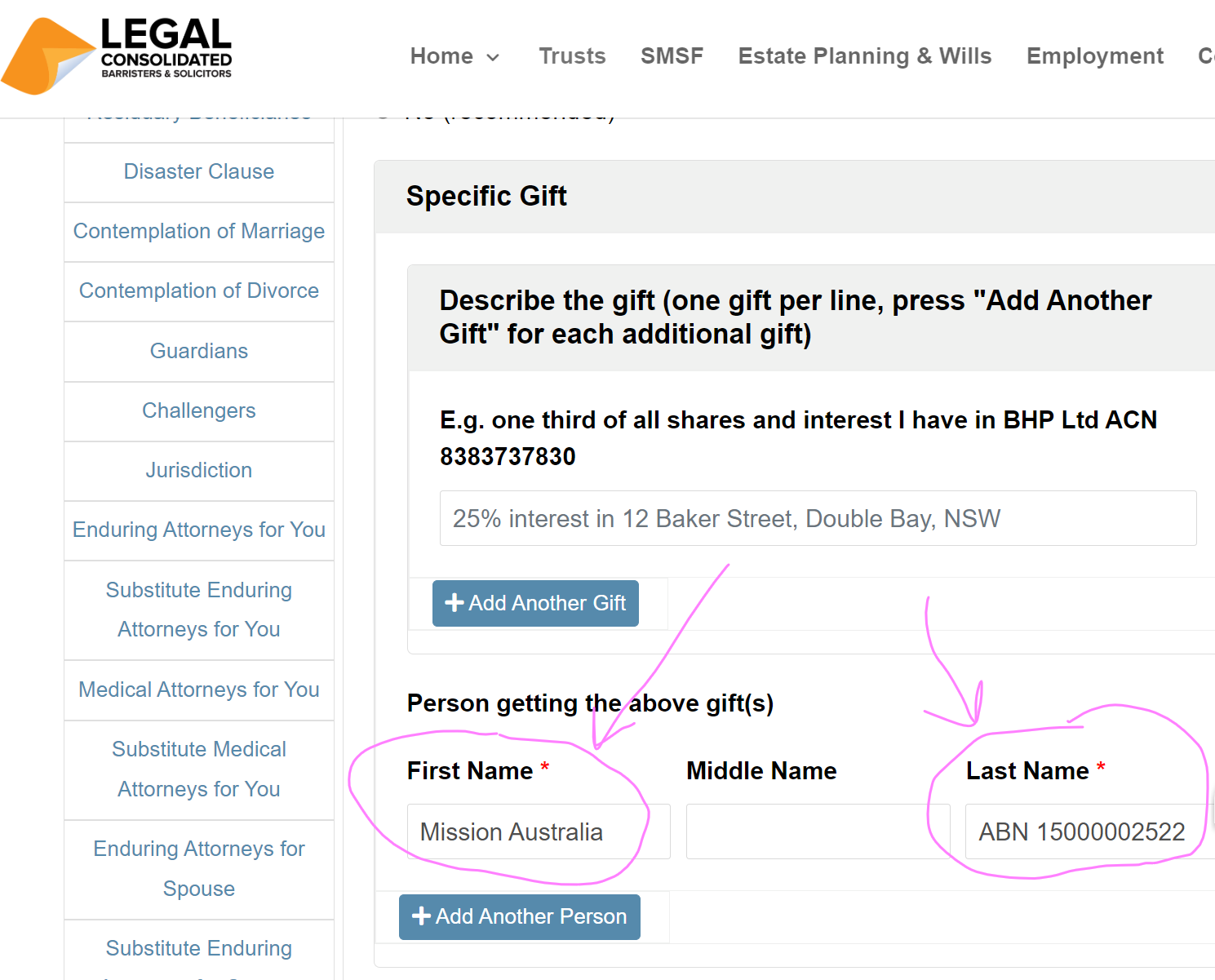If you thought the family court was just about done getting its clutches into mum and dad, think again. In this case, the Family Court looked at the dead father’s Will.
Advisers and accountants in Estate Planning must also consider where the parent’s money goes.

Mrs Hall is a doctor and Mr Hall is a property developer. They have two children. Mr and Mrs Hall are divorced. Mrs Hall sought spousal maintenance.
Mrs Hall’s financial circumstances included an “interest” in the estate of her late father, controlled by her brothers. How much interest did she have? Mrs Hall did not disclose how much the interest was for or provide a copy of her dad’s Will. Without that extra information, the judge made her ex-husband pay $10,833 per month.
Mr Hall appealed. Mr Hall was able to get his hands on the dead man’s “wishes” that:
- Mrs Hall receives from her family business a cash payment of $16.5 million if she divorces her husband, and
- Mrs Hall receives from the family business an annual payment of $150,000 until the date of the above $16.5 million payment.
Dead parent’s Will used in Family Court
There was clear evidence that Mrs Hall’s brothers as Executors would carry out their father’s “wish”. Mrs Hall argued that she did not know how much the interest was for, and that she hadn’t claimed it from her brothers even though her father died five years earlier. The court said this was irrelevant. The Family Court of course, is only interested in the means of Mrs Hall to support herself.
To date, she has not yet apparently received the $16.5 million.
Nevertheless, the court cancelled the maintenance that Mr Hall had to pay.
You must use experts to draft your Will. So much confusion can be caused by poor Estate Planning. The last time we saw such tomfoolery was when Robert Holmes a Court forgot to have a Will.
And as shown, having “wishes” put into the will doesn’t work. In this case, not only are the brothers not obligated to pay their sister but she still got punished for this “wish” in the Family Court.
Draft your will complete with capital-protected trusts and Appointors here.
Case: Hall v Hall
How far can the Family Court go?
How are post-separation inheritances treated on a matrimonial property settlement?
The Family Court looks at all relevant factors before distributing any share of your inheritance to your former spouse.
From the cases:
- Completely ignore the inheritance for all purposes in relation to the division of matrimonial property.
- Exclude the inheritance from the division of matrimonial property. But make an adjustment on the division of the matrimonial property to take into account the access to the inheritance that one spouse will have.
- Include the inheritance as part of the pool of property distributed between the parties. This is while making some adjustment to acknowledge the ‘contribution’ that one party made to bringing the asset to the matrimonial pool.
- Simply include the inheritance as part of the matrimonial asset pool, with no specific adjustments.
- But, note that it is very rare for the recipient of an inheritance or similar ‘windfall’ to have those assets completely quarantined, regardless of when they are received up until the final date of the property settlement.
Protects from death duties, divorcing and bankrupt children and a 32% tax on super.
Build online with free lifetime updates:
Couples Bundle
includes 3-Generation Testamentary Trust Wills and 4 POAs
Singles Bundle
includes 3-Generation Testamentary Trust Will and 2 POAs
Death Taxes
- Australia’s four death duties
- 32% tax on superannuation to children
- Selling a dead person’s home tax-free
- HECs debt at death
- CGT on dead wife’s wedding ring
- Extra tax on Charities
Vulnerable children and spend-thrifts
- Your Will includes:
- Divorce Protection Trust if children divorce
- Bankruptcy Trusts
- Special Disability Trust (free vulnerable children in Wills Training Video)

- Guardians for under 18-year-old children
- Considered person clause to stop Will challenges
Second Marriages & Challenging Will
- Contractual Will Agreement for second marriages
- Wills for blended families
- Do Marriages and Divorce revoke my Will?
- Can my lover challenge my Will?
- Make my Will fair: hotchpot clauses v Equalisation?
What if I:
- have assets or beneficiaries overseas?

- lack mental capacity to sign my Will?
- sign my Will in hospital or isolating?
- lose my Will or my home burns down?
- have addresses changed in my Will?
- have nicknames and alias names?
- want free storage of my Wills and POAs?
- put Specific Gifts in Wills
- build my parent’s Wills?
- leave money to my pets?
- want my adviser or accountant to build the Will for me?
Assets not in your Will
- Joint tenancy assets and the family home
- Loans to children, parents or company
- Gifts and forgiving a debt before you die
- Who controls my Company at death?
- Family Trusts:
- Changing control with Backup Appointors
- losing Centrelink and winding up Family Trust
- Does my Family Trust go in my Will?
Power of Attorney
 Money POAs: NSW, VIC, QLD, WA, SA, TAS, ACT & NT
Money POAs: NSW, VIC, QLD, WA, SA, TAS, ACT & NT
- be used to steal my money?
- act as trustee of my trust?
- change my Superannuation binding nomination?
- be witnessed by my financial planner witness?
- be signed if I lack mental capacity?
- Medical, Lifestyle, Guardianships, and Care Directives:
- Company POA when directors go missing, insane or die
After death
- Free Wish List to be kept with your Will
- Burial arrangements
- How to amend a Testamentary Trust after you die
- What happens to mortgages when I die?

